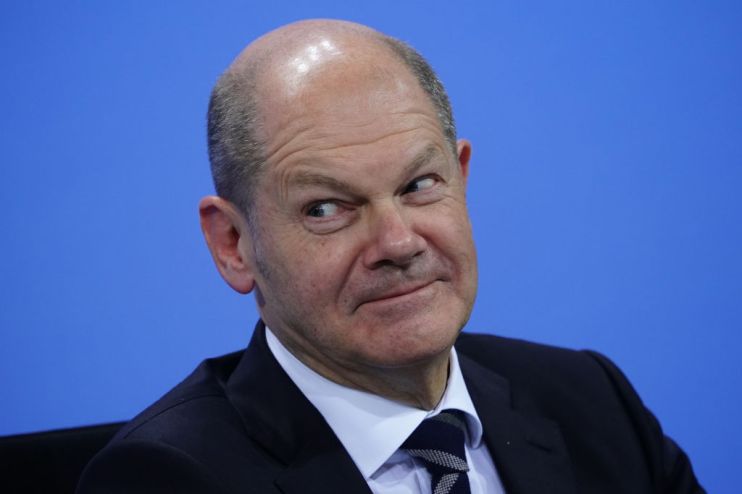Germany rolls out £177bn support package to ease soaring energy bills

Chancellor Olaf Scholz has stepped in with a historic support package to protect households and businesses across Germany from soaring energy prices.
The €200bn (£177bn) “defensive shield” is designed to ease the pressure facing millions of Germans from surging gas and electricity costs following the collapse in Russian gas supplies into Europe.
Scholz said: “Prices have to come down, so the government will do everything it can. To this end, we are setting up a large defensive shield.”
Under the plans, which will be financed with new borrowing, the Government will bring in an emergency price brake on gas and electricity and scrap a previously planned gas levy on consumers to avoid further price increases
Nuclear plants in southern Germany, which were previously due to close by the end of this year, will be kept online until spring 2023.
Meanwhile, the Government has suspended its limit on new debt of 0.35 per cent of gross domestic product this year.
Finance Minister Christian Lindner revealed Germany would finance the relief package by taking on new loans, adding that the country’s public finances were stable.
He warned that the country is in an “energy war” and that it needed to reassure people they would be protected.
Lindner explained: “We want to clearly separate crisis expenditure from our regular budget management, we want to send a very clear signal to the capital markets.”
Germany braced for challenging winter
The hefty support package follows its increasingly expensive bailout and state takeover of Uniper, and its scramble to secure energy supplies ahead of winter.
So far, it has topped up supplies to 91.5 per cent of overall capacity, according to data from ASGI+.
Nevertheless, Germany has brought in energy saving plans to help ease energy use, with cities including Berlin and Hanover bringing in rationing measures in recent months ease energy use.
This includes turning off street lights, limiting heating and cooling temperatures in public buildings, alongside turning off hot water for shower at public swimming pools.
The country is currently at phase two of a three-stage emergency plan, which could eventually see its government divvying out energy supplies.
Germany’s network regulator, the Federal Network Agency, which would be in charge of gas rationing in the event of a supply emergency, warned that household consumption remains too high to be sustainable.
Last week’s usage of natural gas by German households and small industry was 483 gigawatt hours, up 14.5 per cent above the average for that week over the past four years.
“The numbers for that week are thus very sobering,” said agency president Klaus Mueller.
“Without significant savings in the private area of consumption, it will be difficult to avoid an emergency situation in winter.”